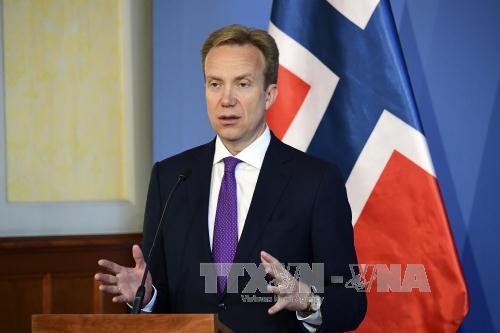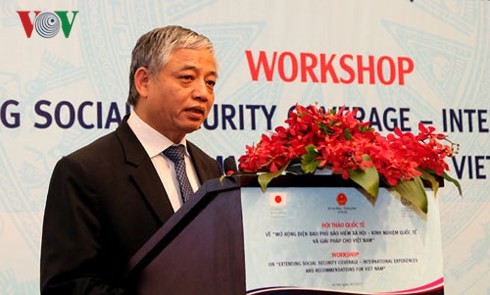(VOVWORLD) - Industrialization towards modernization is defined as the core of the national development strategy as Vietnam enters a new period of growth and integration. In search of a new economic and governance model in the digital era, Vietnam pays special attention to international cooperation and regional and global mechanisms. Vietnam is now busily preparing for the World Economic Forum on ASEAN (WEF-ASEAN) this September in Hanoi.
To embrace the 4th Industrial Revolution, Vietnam, which boasts strong economic growth, has sought to approach regional and global governance, develop smart infrastructure, and train start-up skills and innovation.
An economy of self-reliance
The World Economic Forum is considered an important partner for Vietnam to share its policies and visions with. The Forum, an NGO with global influence, has partnered with a network of thousands of top businesses and think tanks. WEF-Vietnam cooperation began in 1989 and has flourished since the signing of an agreement on “Developing a Self-Reliant Vietnamese Economy” in 2017, focused on economics, cross border trade and investment, infrastructure, production, agriculture, food security, education, and gender equality.
 Chairman of the World Economic Forum Borge Brende (Photo: AFP/VNA) Chairman of the World Economic Forum Borge Brende (Photo: AFP/VNA) |
Borge Brende, Chairman of the World Economic Forum, said at a Wednesday meeting in Hanoi: “I think this is also based on the fact that a lot of countries and businesses see Vietnam and the whole ASEAN cooperation as something more and more important. Also for Vietnam, the turnaround after the financial crisis is very impressive, while we know that Vietnam has also economic challenges. 7% economic growth is very high, also in an international context. But we know that Vietnam is now a middle income country and not eligible for the traditional ODA that it used to be. Off-course, this is a good thing. But it changes the way Vietnam is thinking. It needs more public-private-partnership.”
Vietnam is the first partner with whom the WEF wants to sign a Private-Public Partnership (PPP) deal. If successful, the model, which will be signed in September in Hanoi, will be replicated within ASEAN.
Vietnam to take part in formulating global rules
Experts predict that the PPP deal will provide big opportunities for Vietnam to learn from WEF expertise on rapid and sustainable development. They say the deal will enable the Forum to assist Vietnam’s human resource development. Thousands of personnel will be able to attend WEF training courses and enlist its resources.
 Deputy Minister of Labor, Invalids, and Social Affairs Doan Mau Diep (Photo: VOV) Deputy Minister of Labor, Invalids, and Social Affairs Doan Mau Diep (Photo: VOV) |
Deputy Minister of Labor, Invalids, and Social Affairs Doan Mau Diep says Vietnam is anticipating changes: “The digital era, automation, and Industrial Revolution 4.0 are affecting all economies. Vietnam is preparing to encourage lifelong learning and train new skills to help employees adapt to the changes brought about by digitization and the 4th Industrial Revolution.”